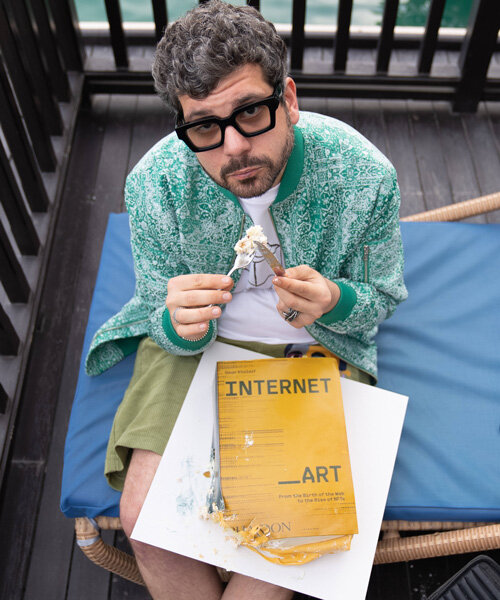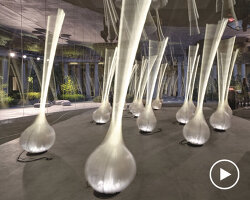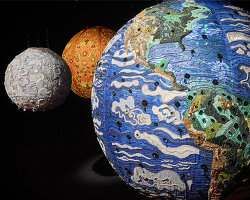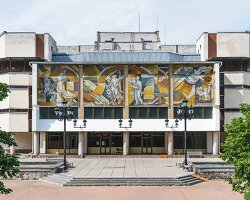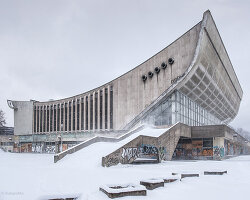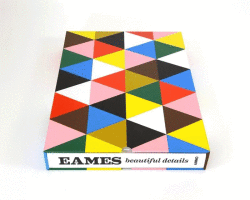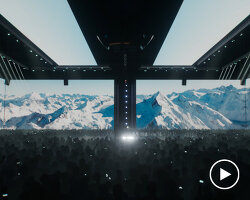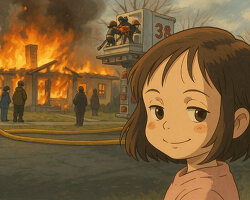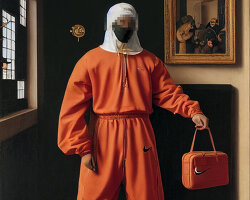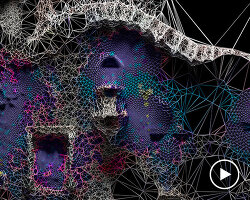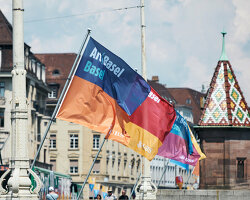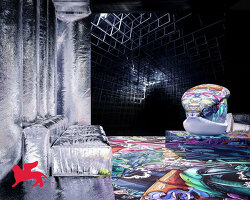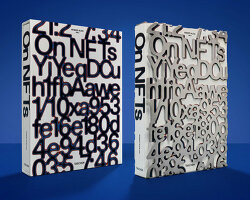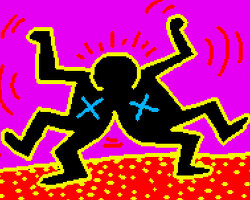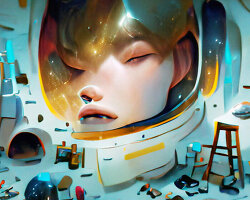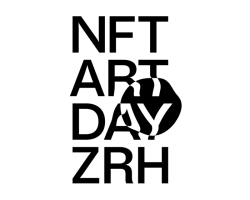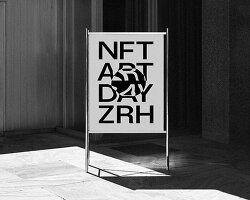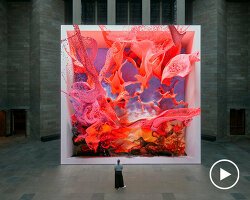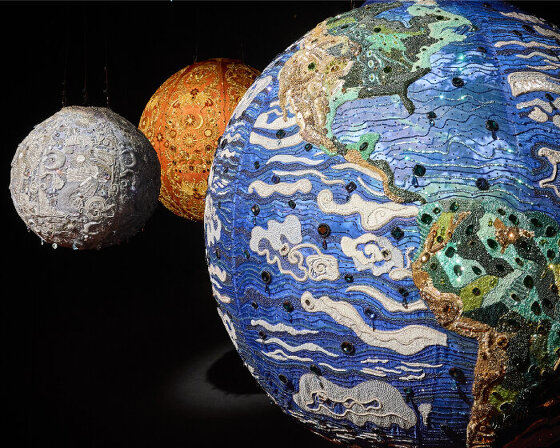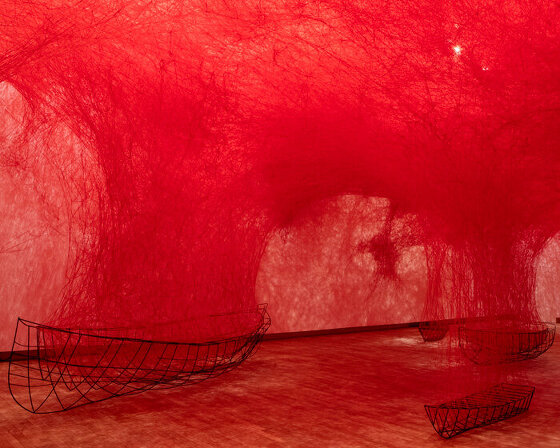the evolution of digital art & culture in the age of the internet
Last weekend, the second edition of NFT ART DAY ZRH brought together leading thinkers and practitioners in the digital art realm to discuss the transformative potential of blockchain technology and its impact on the art world. From panels on navigating collecting and ownership in the crypto art landscape to the relationship between the disparate traditional and digital creative realms, the evolution of emerging technologies and new means for exploration was a core theme. Among the participants, Dr. Omar Kholeif, an influential figure in the field and author of Internet_Art: From the Birth of the Web to the Rise of NFTs, delved into notions of democratization, justice, and application of emerging tools such as the blockchain, NFTs, and AI for their keynote speech. The author explored the prospect of social justice for both art and artists on the blockchain and explored the untapped possibilities of these technologies for reshaping the present and future. ‘I am optimistic that if we collaborate and coordinate, as a community, we could potentially see seismic shifts that affect digitally-native art more broadly speaking, and not purely in a tokenistic fashion,’ they told designboom in our interview.
Recognizing the profound impact of technology on our lives while the two continue to become increasingly entwined, Kholeif has compiled a comprehensive survey of the evolution of digital culture in the age of the internet — from the conception of the World Wide Web in 1989 to the augmented virtual reality of the blockchain-powered metaverse — and its relationship to art. ‘I wanted to reveal how an entire ocular sensibility has been generated in the age of the internet — one that affects the ocular conditions through which every form of culture is created and conditioned.’
As media partner of NFT ART DAY ZRH, we reached out to Omar Kholeif to get a deeper insight behind his book, his views on the impact NFTs on the growth and recognition of internet art, its impact on the traditional art realm, and the democratization of art. Read on for the full interview below, and see more of our coverage here.
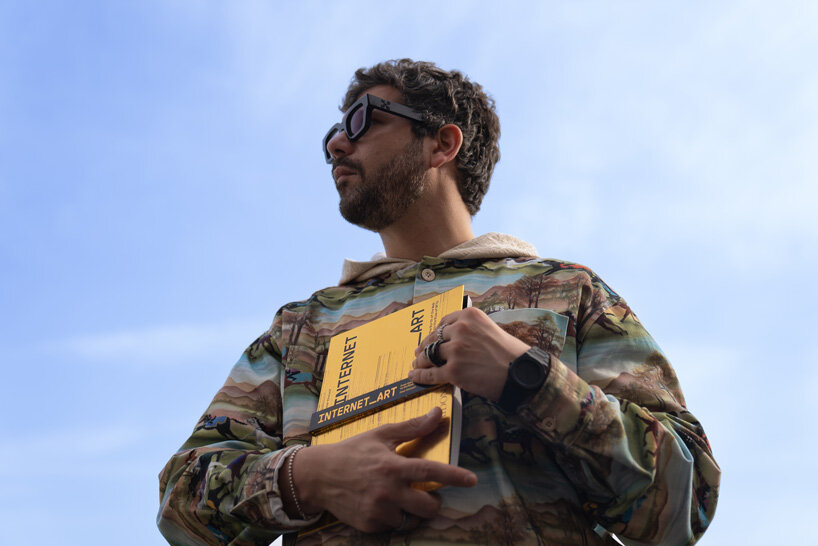
all images courtesy of artPost21
interview with omar kholeif at nft art day zrh
designboom (DB): Can you tell us about the topics your keynote at NFT ART DAY ZRH touched upon?
Omar Kholeif (OK): I explored the prospect and concept of social justice for art and artists on the blockchain by discussing the expansive possibilities of these technologies; and to consider the ways that they have yet to be deployed across the field.
DB: Can you elaborate on the core themes and concepts explored in your new book Internet_Art? What motivated you to explore these?
OK: The book is titled Internet_Art: From the Birth of the Web to the Rise of NFTs and the ‘underscore’ is pivotal as it shapes the way that the book is structured. I have spent two decades writing, researching, and curating digital culture. Rather than present a generic anthology that brings together a small list of names, I wanted to reveal how an entire ocular sensibility has been generated in the age of the internet — one that affects the ocular conditions through which every form of culture is created and conditioned. I chose to focus on my own lived experience, as this reflects the internet’s capacity to create space for marginalised voices. What I do is narrate both a memoir and a social history of the key currents that have underscored culture from 1989 to the present. It was a massive undertaking that took three years to put out into the world, and it is one of my proudest achievements so far. I hope that it will embolden others to tell their stories — as there is no one story, ever!
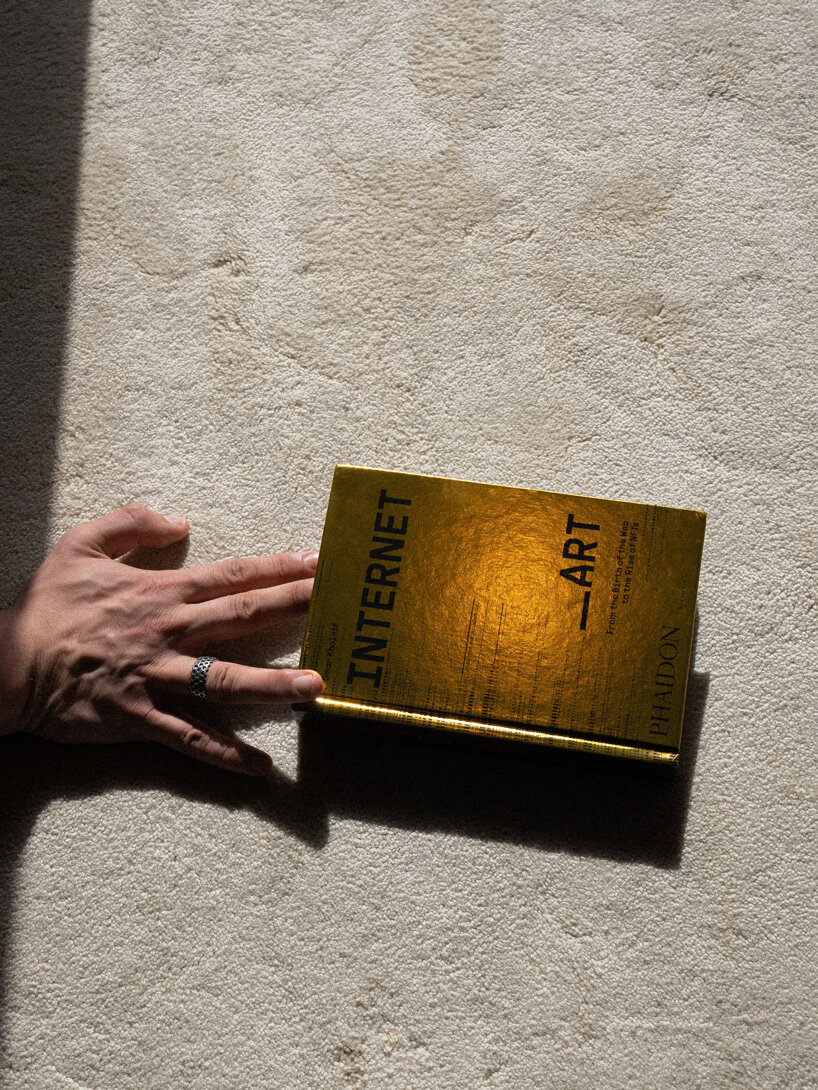
in conversation with Omar Kholeif on their book Internet_Art at NFT ART DAY ZRH
DB: The emergence of NFTs has seen a surge of interest around digital art. How do you think NFTs have impacted the growth and recognition of internet art, and how have they have reshaped the art market?
OK: I have to be honest that I do not yet think that NFTs have yet re-shaped the art market. The market is just catching up, coming to grips with what NFTs are, what the blockchain is, and what possibilities they can engender for us as a society. I certainly hope that something will shift. But right now, we are still in the early stages of a post-speculation bubble, and we are about to take a look inwards to reflect and see what we can make of both our present, and prospective future. That is why I came to NFT ART DAY ZRH. I have chosen, up until this point, to be completely silent on the subject of NFTs. Indeed, I am optimistic that if we collaborate and coordinate, as a community, we could potentially see seismic shifts that affect digitally-native art more broadly speaking, and not purely in a tokenistic fashion. I am, and always have been, a digital centerist with a slight preference for being an optimist!
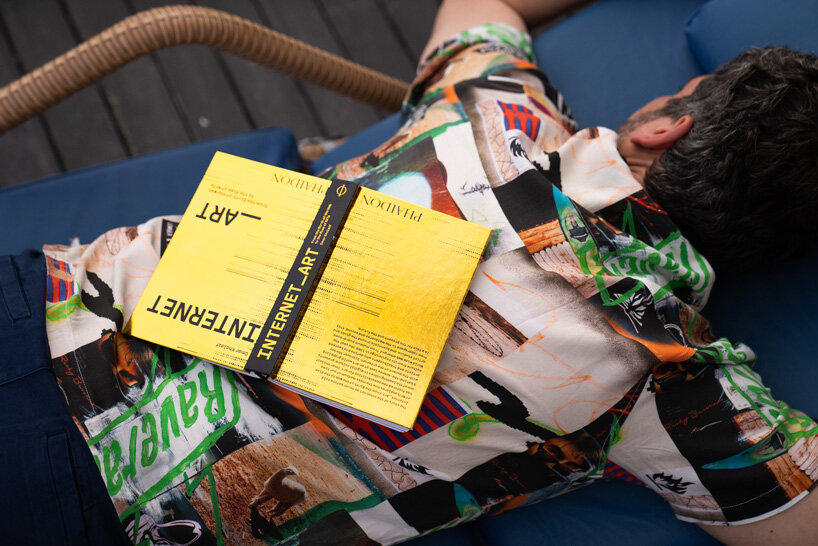
Internet_Art charts of the evolution of digital culture in from the conception of the World Wide Web to the metaverse
DB: How has the traditional art world grappled with the transformative influence of the digital realm over the past 30 years? Has its growth opened up any key avenues or challenges for both institutions and creators?
OK: Where to begin? What challenges haven’t they faced? Traditional museums, large-scale galleries, and even auction houses often move at a snail’s pace. They find anything that deviates from their branding to be a laborious process to have to negotiate. That’s why in 2012, I founded the agency, artPost21, as a means to signpost a 21st century culture that is responsive, and reacts with immediacy. I have especially been interested in cultural actors and cultural forms that exist at the margins of society. Those individuals whose voices require amplifying. artPost21 operates as an agent for artists — a consultancy, a commissioning platform, a podcast, and an incubator, to test out those ideas.
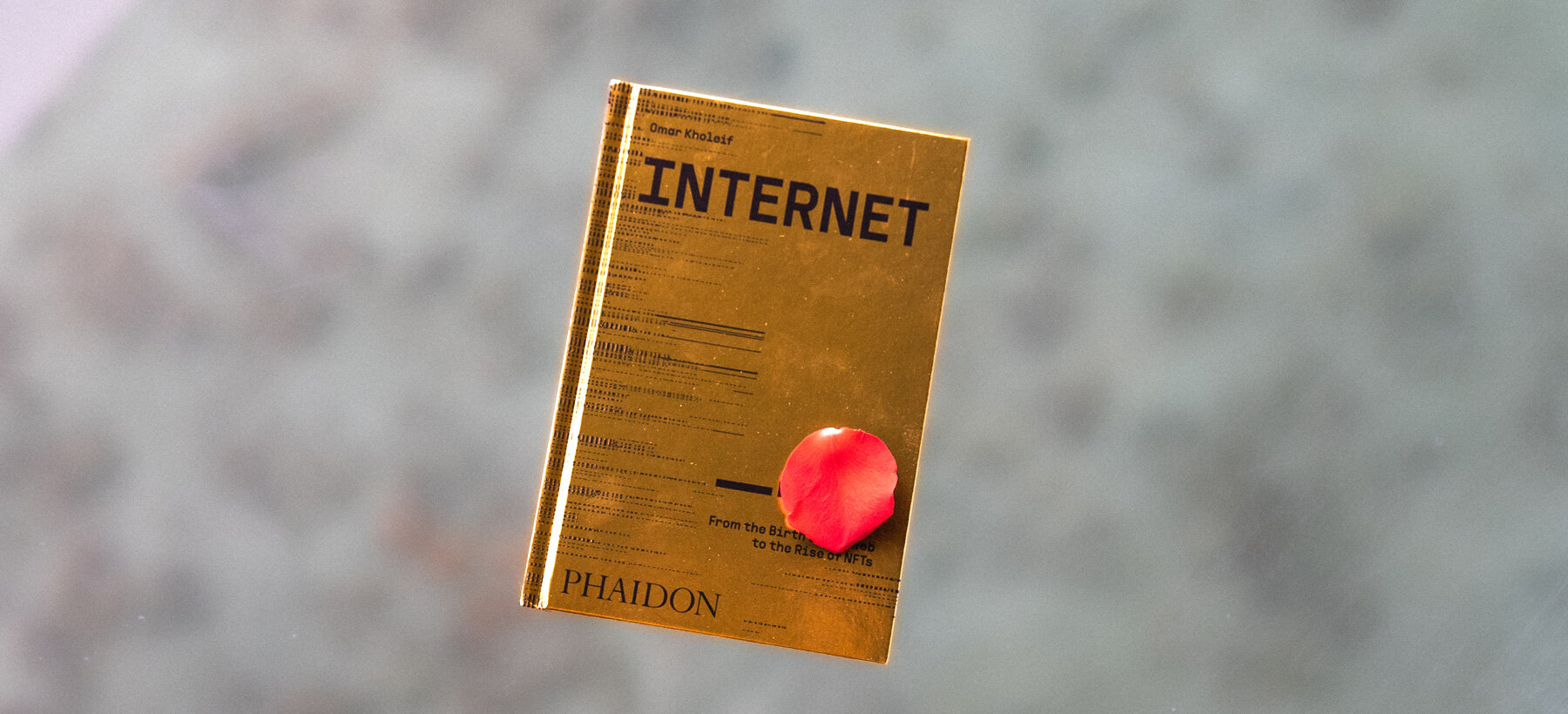
DB: Are there any key players in the current digital sphere who have been redefining the scope of this realm that you would like to spotlight?
OK: As a historian in culture, I am most interested in those who are experimenting with technologies that are right in front of us but that might be used contrary to their intended purpose. It is for this reason that I became obsessed with Cream Projects; they were developing aesthetic landscapes and imaginaries through video game engines. I am also thrilled to see Simon Denny’s metaverse landscapes which blur the boundaries between real and virtual worlds. I also appreciate how American Artist use every opportunity to make art as an ongoing ‘thought experiment’, interrogating how technology codifies race, class, gender, and proposes specific power structures. I could go on of course.
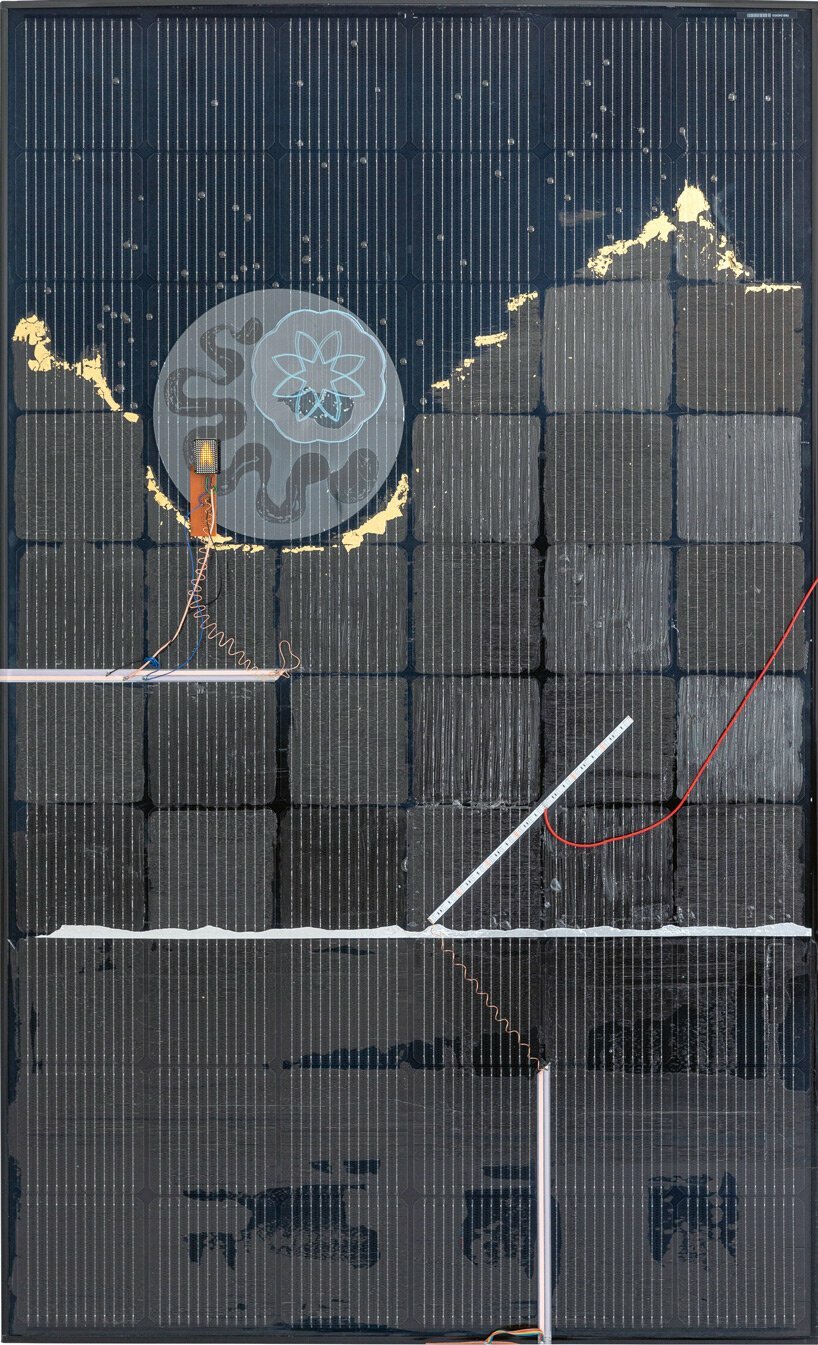
Solar Powered LED Circuit Composition 41 (Genzken & Richter) by Haroon Mirza | image courtesy of Phaidon Press
DB: Going beyond ‘the birth of the web and the rise of NFTs’ as your book charts, what are your predictions about how internet art will continue to evolve in the coming years?
OK: I believe that we now need to, and indeed will, stop constantly speculating, and spend more time engaging with the contours of the present. As I am reminded by the research and practice of Prof. Kate Crawford, or the ChatGPT collaborations of author K-Allado McDowell, AI will play an ever-more significant role in contouring not only the way that we see the world, but also, encourage us to consider how we work ‘with’ and not ‘against’ emerging technologies, in order to craft the present that we wish, want, and choose to live in.
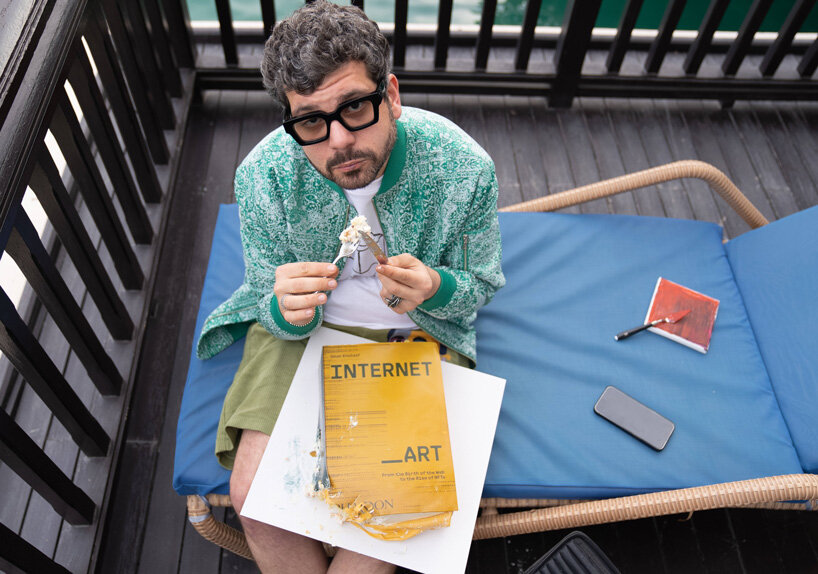
Omar Kholeif explored notions of social justice for artists on the blockchain at NFT ART DAY ZRH

‘I have especially been interested in cultural actors and cultural forms that exist at the margins of society’
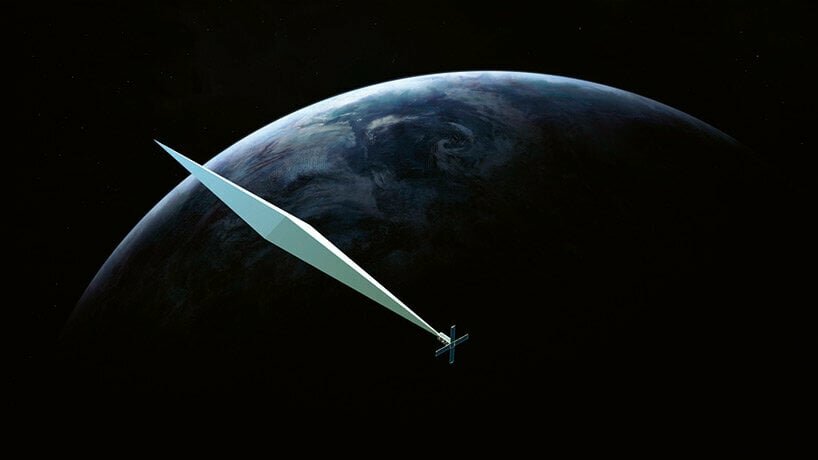
Orbital Reflector by Trevor Paglen | image courtesy of Phaidon Press
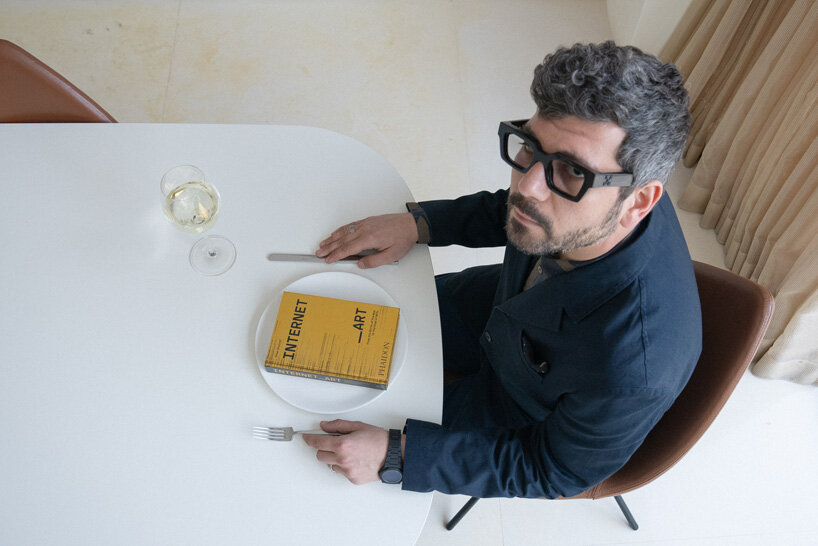
‘I am, and always have been, a digital centerist with a slight preference for being an optimist!’
project info:
conference name: NFT ART DAY ZRH
speaker: Omar Kholeif
conference location: Auditorium Kunsthaus Zürich
conference date: June 10-11, 2023
all conference participants: James Bridle, Brian Droitcour, Luba Elliott, Alex Estorick, Sabine Himmelsbach, IX Shells, Dr. Omar Kholeif, Mario Klingemann, Sandra Nedvetskaia, Hans Ulrich Obrist, Operator, Kenny Schachter, Anne Spalter, thefunnyguys (Le Random Collection), and Valerie Whitacre.
